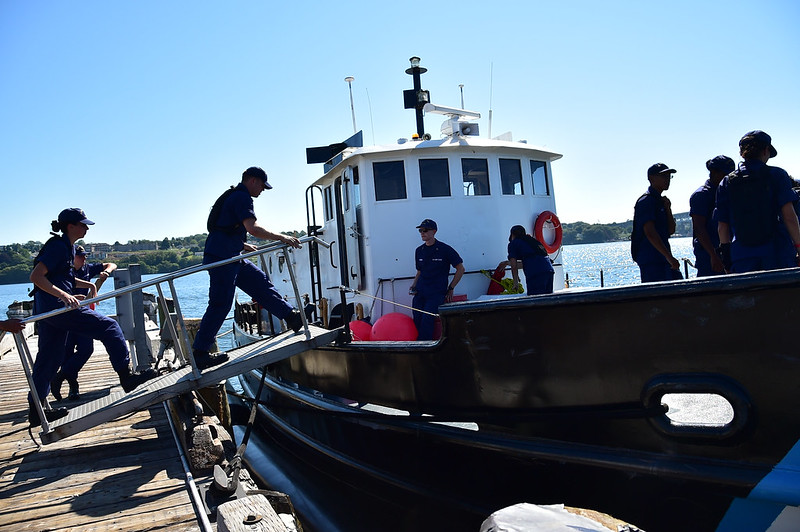Operating a vessel carrying passengers for hire without a licensed U.S. Coast Guard (USCG) captain is not only illegal but also poses significant safety risks. This article delves into the definition of a paying passenger, the necessity of proper licensing, compliance with the Code of Federal Regulations (CFRs), and real-world consequences faced by individuals caught violating these regulations.
Defining a Paying Passenger
According to the USCG, a “passenger” is any individual carried on a vessel, excluding the owner or their representative, the master, and crew members engaged in the vessel’s business who have not contributed consideration for carriage and are paid for onboard services. A “passenger-for-hire” is defined as a passenger for whom consideration is contributed as a condition of carriage on the vessel, whether directly or indirectly flowing to the owner, charterer, operator, agent, or any other person having an interest in the vessel. “Consideration” refers to an economic benefit, inducement, right, or profit, including monetary payment, accruing to an individual, person, or entity, but does not include a voluntary sharing of the actual expenses of the voyage, such as contributing to fuel, food, beverage, or other supplies.
Licensing Requirements
Vessels carrying passengers for hire must be operated by individuals holding the appropriate USCG-issued credentials. For uninspected passenger vessels—those carrying up to six passengers—operators are required to have a valid Operator of Uninspected Passenger Vessels (OUPV) license, commonly known as a “six-pack” license. This credential ensures that the operator has met specific training, testing, and health standards to safely carry passengers.
Compliance with CFRs
Compliance with the Code of Federal Regulations is mandatory for the legal operation of passenger-carrying vessels. Key requirements include:
- Vessel Documentation: Proper registration and documentation as per USCG standards.
- Safety Equipment: Adequate life jackets, fire extinguishers, and other safety gear must be onboard and in good condition.
- Drug and Alcohol Testing: Operators must be enrolled in a USCG-approved drug and alcohol testing program.
- Certificates of Inspection: Vessels carrying more than six passengers must hold a valid Certificate of Inspection issued by the USCG.
Enforcement Actions and Penalties
The USCG actively enforces regulations against illegal passenger operations. Penalties for non-compliance can be severe:
- Civil Penalties: Operators can face fines up to $60,000 or more for illegal passenger-for-hire operations and over $100,000 for violating a Captain of the Port Order.
- Voyage Termination: The USCG has the authority to terminate voyages of vessels found to be operating illegally or without proper safety measures.
- Criminal Charges: Willful and knowing violations can lead to felony charges, with potential imprisonment and substantial fines.
Case Studies of Enforcement Actions
- San Juan, Puerto Rico (March 2025): The USCG terminated a bareboat charter voyage after it violated a federal Captain of the Port Order to cease illegal charter operations. The vessel was found operating without meeting the criteria for a legal bareboat charter.
- Dania Beach, Florida (February 2025): Coast Guard law enforcement officers terminated the voyage of an illegal passenger vessel near Dania Beach. The vessel was found to be operating without a valid Certificate of Inspection and without a licensed operator, among other violations.
- Lake Tahoe, California (May 2024): The USCG terminated the voyage of an illegal charter vessel operating near Emerald Bay. The 22-foot recreational boat was carrying 15 passengers and lacked a valid Certificate of Inspection, a licensed operator, and a drug and alcohol program.
- Miami, Florida (February 2025): A dozen illegal charter boats were stopped during an operation in Biscayne Bay and the Miami River. Ten voyages were terminated for safety violations, and two owners were found in violation of federal Captain of the Port orders.
- New York City (July 2022): Richard Cruz, a 33-year-old boat captain, was sentenced to 18 months in prison after his unauthorized tour boat, “Stimulus Money,” capsized in the Hudson River, resulting in the deaths of a 48-year-old woman and a 7-year-old child. Cruz admitted to overloading his boat and lacking the necessary Coast Guard credentials for taking on paying customers.
Conclusion
Ensuring the safety of passengers on commercial vessels is a paramount concern for the USCG. Operators must adhere to licensing requirements and comply with all relevant regulations to avoid severe penalties and, more importantly, to protect the lives of those aboard. Prospective passengers should exercise due diligence by verifying the credentials of vessel operators and the compliance status of the vessels they board.
For more information on obtaining the necessary credentials or to report suspected illegal operations, contact your local USCG Sector Office.
Let’s get you licensed and confident.
Fair winds,
Captain Kent
Confident Captain

